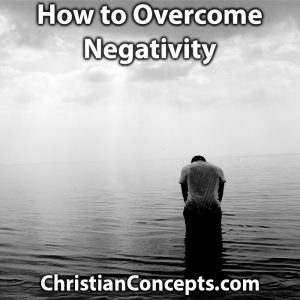Failure would be a death sentence if it were not for God’s mercy. Many people struggle with believing that their failure leaves a fatal mark that limits their potential. If you think you’ve failed, you might believe something like:
- I’ll always mess up God’s plans.
- There’s no hope for me now.
- I’ll wear this scar for the rest of my life.
- That was my last chance.
- God will never forgive me.
- My best will never be good enough.
- God is going to send me to hell.
- I’ll never recover from this.
- There’s no use trying again.
For Christians to believe any of these statements, they must be deceived. Every one of them has something false about it. What Jesus has done for believers removes the permanence of these statements and breathes hope into the hopeless, life into the lifeless.
Failure From the World’s Perspective
A worldly definition of failure distorts God by emphasizing two extreme responses. People are forever condemned or always excused without consequence. These miss God’s heart because they throw out His mercy or justice.
Without God’s mercy, we would all be perpetually caught in shame. The unbearable feelings of self-condemnation and self-loathing weigh heavily without any way of escape. People attempt to cope by utilizing perfectionism or apathy to avoid the feelings of falling short.
Without God’s justice, we can become lulled into a false sense of security. The prideful presumption that there will never be a reckoning for our attitudes and choices might soothe the conscience today but does nothing to prevent the condemnation tomorrow. People attempt to cope by utilizing relativism to discount the seriousness of God’s absolute standards.
Sin is probably the best definition of failure. It completely misses what God wants for us. Without God, we are defective because of sin. However, God, because of His love, has stripped sin of its power and permanent consequences. So it does not have a significant lasting effect for believers.
Failure From God’s Perspective
Let’s reconsider the definition of failure, but include God this time. A worst-case definition of failure considers it to be a temporary setback. That’s because God works for our ultimate good. We are on the same side.
Failure implies finality. But because God is an eternal being, endings do not exist for Him. Any moment in time is not the final word on your situation.
Failure implies hopelessness. But God is an endless supply of hope. Nothing can defeat God. Nothing can defeat God’s plans. Nothing can defeat God’s people.
Failure implies permanent loss. But God restores and heals, often while we are yet in this life. That’s possible because knowing Him means knowing boundless hope.
Yet this I call to mind and therefore I have hope: Because of the Lord’s great love we are not consumed, for his compassions never fail. They are new every morning; great is your faithfulness.
Lamentations 3:21-23
We can always learn from our experiences, even if they seem like abysmal failures. God is ready to give us another chance. We can start again in a stronger position.
I sought the Lord, and he answered me; he delivered me from all my fears. Those who look to him are radiant; their faces are never covered with shame. This poor man called, and the Lord heard him; he saved him out of all his troubles. The angel of the Lord encamps around those who fear him, and he delivers them.
Psalm 34:4-7 NIV
So you can see that you will have trouble, but God will deliver you. He will deliver you from evil. He looks beyond failure to your eternal potential in Jesus Christ. For other verses that support God’s grace and hope, see Isaiah 40:31, Romans 5:5, Psalm 33:18, and Jeremiah 29:11.
May the God of hope fill you with all joy and peace as you trust in him, so that you may overflow with hope by the power of the Holy Spirit.
Romans 15:13 NIV
Learn more about Shame.
Image by mojo49 from Pixabay
Last updated 2025/02/02
































